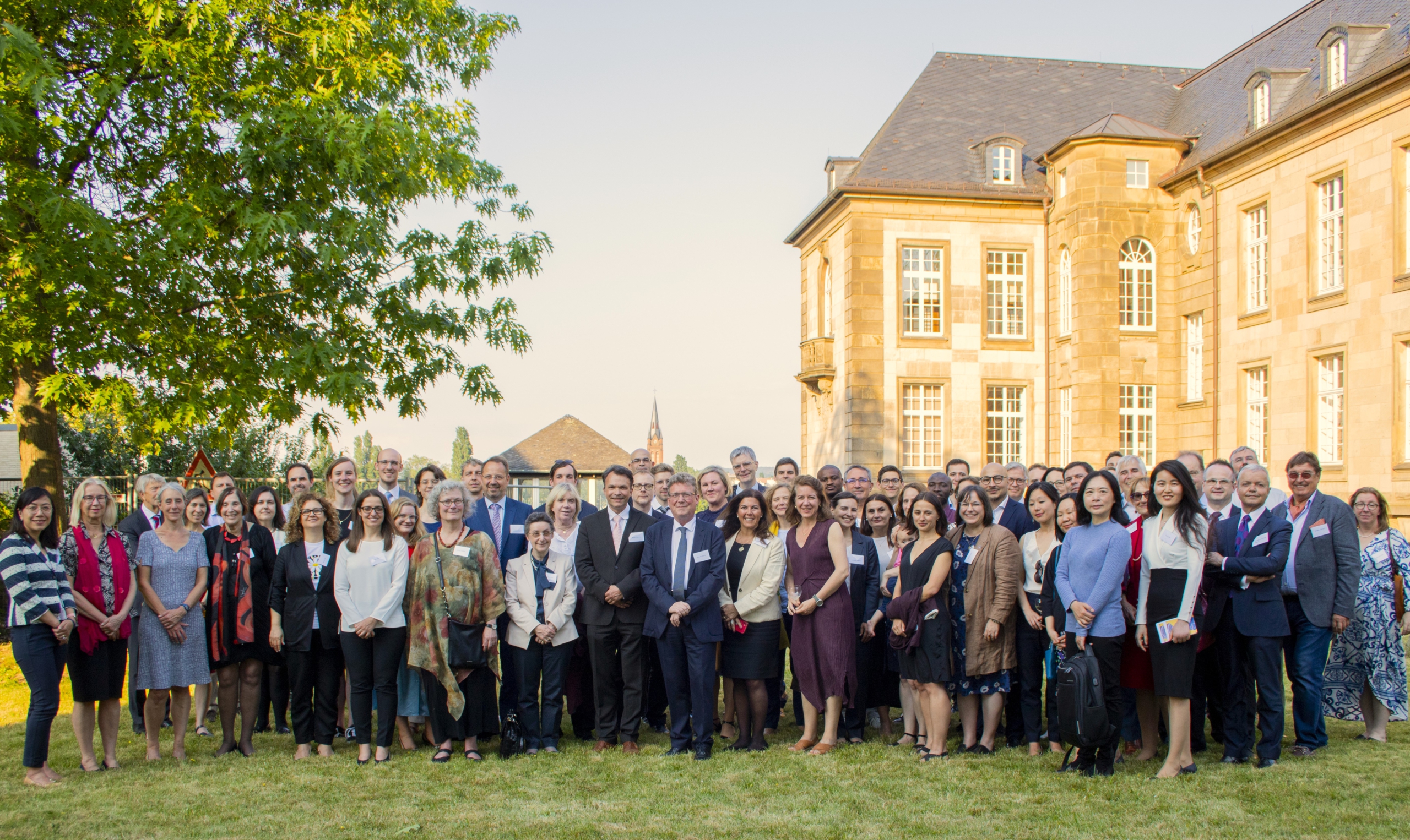Views
The New Saudi Civil Transaction Act and its Potential Impact on Private International Law in Saudi Arabia
The Kingdom of Saudi Arabia (KSA) has recently enacted a new Civil Transactions Law (Royal Decree No. M/199, dated June 16, 2023). The law will enter into force on December 16, 2023, 180 days after its enactment (hereinafter referred to as “the new law”). This law has been rightly described as “groundbreaking” because, prior to the enactment of the new law, there has been no codification of civil law in the Kingdom, and civil law issues have traditionally been governed by the classical rules of Islamic Sharia according to the teachings of the prevailing school of fiqh (religio-legal jurisprudence) in the Kingdom (Hanbali School). Like most of the civil law codifications in the region, the new law focuses mainly on the so-called “patrimonial law,” i.e., property rights and obligations (contractual and non-contractual). Family relations and successions are dealt with in a separate law, which was previously enacted in 2022 and entered into force the same year (Personal Status Act, Royal Decree No. M/73 of 9 March 2022, entered into force on June 18, 2022).
Book Review: The UN Guiding Principles on Business & Human Rights
This book review was written by Begüm Kilimcioglu, PhD researcher, Research Groups Law & Development and Personal Rights & Property Rights, University of Antwerp
Barnali Choudbury, The UN Guiding Principles on Business & Human Rights- A Commentary, Edward Elgar Publishing, 2023
The endorsement of the United Nations Guiding Principles (UNGPs) in 2011 represents a milestone for business and human rights as the principles successfully achieved to put the duties of different actors involved in (possible) human rights abuses on the international agenda. The UNGPs provide a non-binding yet authoritative framework for a three-pillared scheme to identify and contextualize the responsibilities with regard to business and human rights: the State’s responsibility to protect, businesses’ responsibility to respect, and facilitating access to remedy. However, although the impact of the principles can be described as ground-breaking, they have also been criticized for their vague and generic language which provides for a leeway for certain actors to circumvent their responsibilities (see Andreas Rasche & Sandra Waddock, Surya Deva, Florian Wettstein).Therefore, it is important to determine and clarify the content of the principles to increase their efficiency and effectiveness. In this light, this commentary on the UNGPs which examines all the principles one-by-one through the inputs of various prominent scholars, academics, experts and practitioners is indeed a reference guide to when working on corporate social responsibility.
The Visible College of International Lawyers and the HCCH 2019 Judgments Convention – Conference in Bonn
The HCCH 2019 Judgments Convention has been the subject of an ever-growing body of academic research and discussion ever since it was signed; but due to the pandemic, almost all of it had to happen in writing. Just in time for its entry into force, though, and thus perfectly timed, the first international conference on the HCCH 2019 Judgments Convention Cornerstones – Prospects – Outlook took place a week ago at the University of Bonn, hosted by Matthias Weller together with Moritz Brinkmann and Nina Dethloff, in cooperation with the Permanent Bureau of the HCCH, and with the support of the German Federal Ministry of Justice.
The conference brought together much of the aforementioned discussion between a range of academics, practitioners and policymakers, including the contributors to the book of the same title, edited by Matthias Weller, João Ribeiro-Bidaoui, Moritz Brinkmann, and Nina Dethloff, for which the conference doubled as a launch event. It accordingly followed the same structure, organized into seven panels overall that were split into three larger blocks.

The first of those (“Cornerstones”) focused on some of the core concepts underpinning the Convention. Wolfgang Hau (LMU Munich) discussed the meaning of ‘judgments’, ‘recognition’, and ‘enforcement’; Pietro Franzina (Catholic University of Milan) focused on the jurisdictional filters (with an emphasis on contractual obligations, i.e. Art. 5(1)(g)); and Marcos Dotta Salgueiro (University of the Republic of Montevideo) discussed the grounds for refusal. After some lively discussion, the block continued with papers on the Convention’s much-discussed Art. 29 (Cristina Mariottini (Luxembourg)) and on its interplay with the 2005 Choice of Court Convention (Paul Beaumont (University of Stirling)).
News
Symeonides on Private International Law Bibliography 2024: U.S. and Foreign Sources in English

Over the past 19 years, Professor Symeon C. Symeonides (Alex L. Parks Distinguished Professor of Law, Dean Emeritus) has been providing scholars, researchers, practitionners and student with a comprehensive and extensive compliation of Parivate International law bibliogrphy.
The 2024’s compilation (Private International Law Bibliography 2024: U.S. and Foreign Sources in English) includes 58 books and 427 journal articles, covering a wide range of topics within private international law (conflict of laws) and related fields.
The bibliography addresses key areas such as prescriptive jurisdiction, extraterritoriality, federal-state conflicts, and specific aspects of arbitration. It also encompasses legal issues related to foreign relations and international human rights, providing a valuable reference for those studying or working in these domains.
This compilation serves as a significant resource for legal scholars and practitioners, offering a thorough overview of the literature in private international law and its associated fields.
Access to the bibliography is available on Prof. Symeonides’ SSRN page here.
I would like to take this opportunity to extend my heartfelt congratulations to Prof. Symeonides for his unwavering commitment and remarkable contributions. His bibliography continues to be a cornerstone of legal research and a testament to the enduring importance of meticulous scholarship.
Virtual Workshop (in English) on January 7: Joseph William Singer on “Conflict of Abortion Laws”

On Tuesday, January 7, 2025, the Hamburg Max Planck Institute will host its monthly virtual workshop Current Research in Private International Law at 4:00 p.m. – 5:30 p.m. (CET). Professor Joseph William Singer (Harvard Law School) will speak, in English, about the topic
“Conflict of Abortion Laws”
With the abolition of the constitutional abortion right in the United States come huge differences among the laws of the states, and that leads to questions about which state law applies when a person from an anti-abortion state travels to a pro-choice state to get an abortion. Can anti-abortion states apply their regulatory and tort regimes to their own residents who leave the state to obtain an abortion? Can they empower residents to sue abortion providers in other states to protect what they view as the “unborn child”? Can pro-choice states confer immunity from suit on abortion providers and on people who get abortions from suits filed in anti-abortion states? Does the United States Constitution limit the power of anti-abortion states to apply their laws in an extraterritorial manner, and, if not, how should courts revolve conflicts of law (private international law) questions about abortion?
The presentation will be followed by open discussion. All are welcome. More information and sign-up here.
If you want to be invited to these events in the future, please write to veranstaltungen@mpipriv.de.
Praxis des Internationalen Privat- und Verfahrensrechts (IPRax) 1/2025: Abstracts
The latest issue of the „Praxis des Internationalen Privat- und Verfahrensrechts“ (IPRax) features the following articles:


